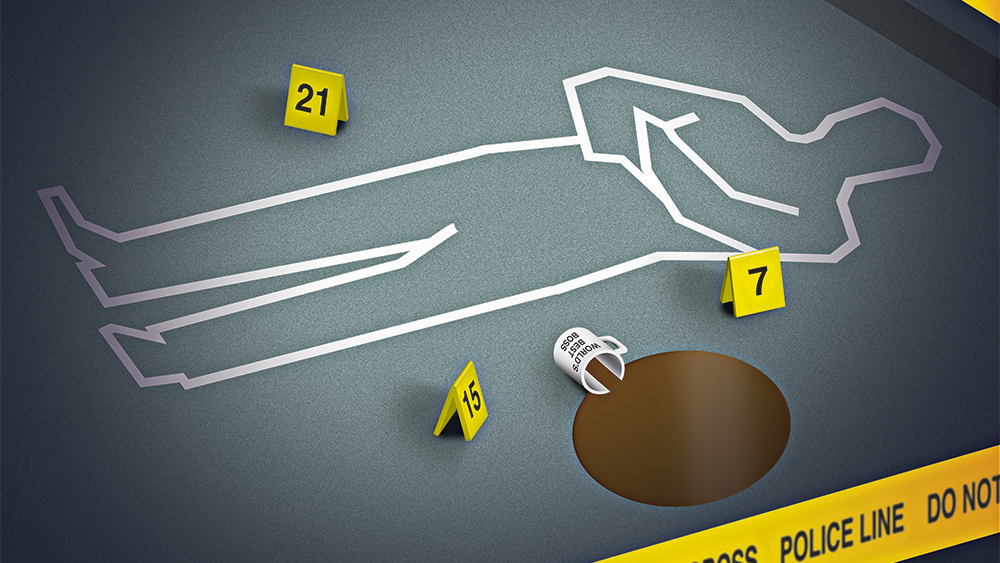Why Production Crew Members Are Especially Vulnerable to Workplace Abuse
By Daniel Holloway
LOS ANGELES (Variety.com) – Though their treatment has been less scrutinized than that of actors and writers in the #MeToo era, below-the-line crew members are particularly vulnerable to workplace abuse.
That was apparent when a representative from IATSE Local 600 — the Intl. Cinematographers Guild — visited the set of “Criminal Minds” Oct. 4, two days after Variety first reported on allegations of sexual harassment and retaliatory firings against director of photography Greg St. Johns. The union rep spoke to at least one camera operator and left business cards but, according to sources, fielded no formal complaint about workplace conditions. As one crew member told Variety, “We were all working or too scared to talk.”
While the crew members are protected by union representation and increasingly detailed policies about workplace behavior, the peculiar work arrangements that govern crew employment discourage them from reporting misconduct and limit their options for recourse.
St. Johns is accused of verbal abuse, touching crew members on the buttocks and genitals and firing those who complained. Crew members — including one, Tony Matulic, who filed a complaint with the California Dept. of Fair Employment and Housing, which is now investigating — claimed that ABC Studios and the show’s producers knew about St. Johns’ alleged abuse and allowed it to continue unchecked.
Speaking to Variety for its Oct. 2 story, Matulic pointed out that below-the-line workers are technically not employed by the studios that produce television series, and therefore lack certain protections. “You don’t feel like you’re part of the business. It just feels like we’re contracted workers,” he said. “We’re just there for the job.”
Matulic told Variety in an interview earlier this month that he believed he was fired from his role as digital imaging technician on “” in retaliation for standing up to St. Johns after the DP touched him on the rear. In April he contacted DFEH, claiming he was subjected to sexual harassment and retaliation. Such complaints are usually precursors to lawsuits, though Matulic has declared no intention of filing a suit against ABC Studios or payroll firm Entertainment Partners, the two companies named in his complaint.
The itinerant nature of crew work complicates issues of liability around harassment and workplace abuse on set. Crew members work for shows only for the duration of productions, which are effectively dissolved when production of one season ends, then reorganized when production of the next season begins.
For most crew, work agreements characterize the relationship as one with an independent contractor. “But even with that,” says attorney Elsa Ramo, “under California law, recent findings have held that a crew member under the guise of a film production should be deemed an employee.”
What company that relationship is with, however, is clouded by the use of third-party payroll companies such as Entertainment Partners to compensate crew. “The secondary issue is who you’re contracting with,” Ramo says. “You have these situations where the studio is not the one contracting with the crew member. It’s really a payroll company or a production-service company that then engages with everyone. It does remove the liability to the mothership or the ultimate financier.”
“You have these situations where the studio is not the one contracting with the crew member. It does remove the liability to the mothership.”
Elsa Ramo, attorney
The unions that represent crew members have, in recent years, beefed up their policies regarding harassment and workplace abuse. Though a spokesperson declined to comment for this story, Local 600 has, for example, issued a policy that defines discrimination and sexual harassment. It encourages crew who believe they have been subjected to either to “promptly report the facts of the incident and the name of the person(s) involved to their management supervisor or a company Human Resources representative, or via telephone ‘hotlines’ established by employers” and to “promptly notify a Local 600 business representative of their experience.”
“The unions have stepped up their education of members,” says Randy Himes, former national director of sound recording for SAG-AFTRA.
Typically when a union fields a harassment or discrimination complaint, multiple business representatives are dispatched to a set to interview crew. Depending on the findings, the union could then enter closed-door discussions with producers — or with another union if the accused party is a member of a different guild — to find resolution. Based on the language in a union’s collective bargaining agreement, “they have a lot of levers they can pull,” Himes says.
But in order for that pulling to begin, a complaint must be made. As Matulic told Variety earlier this month, “When you get on a big show like that, you’re happy to be there. You don’t want to rock the boat.”
The question is, how bad do things have to get before not rocking the boat is no longer an option?

